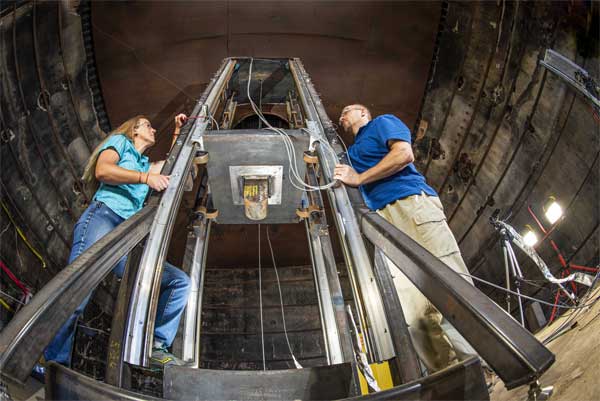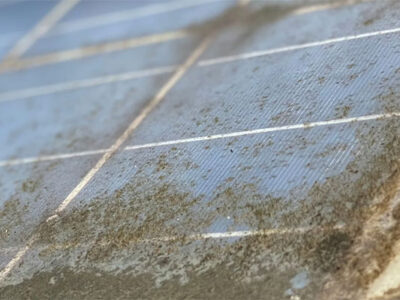Batteries never really stand a chance against Sandia National Laboratories researchers whose job is to test the cells beyond their limits.
And now, with a new indoor tower that allows battery-abuse researchers to drop 200 pounds or more on the out-matched lithium-ion cells, they’ve created yet another way to learn even more about how batteries respond to stress.
“This becomes our ninth way of killing a battery,” said Sandia battery-abuse testing engineer Chris Grosso. “It hits with so much force that so far we are just chopping the batteries in half.”
Lithium-ion batteries are most commonly found in electric cars, computers, medical equipment, and aircraft. And they are getting more powerful all the time.
The constant push for more storage and power drives the need for tests such as those offered by the new drop tower, said Sandia mechanical engineer June Stanley.
“As far as we know nobody in the U.S. has done any drop tests for impact testing like this,” Stanley said.
The data collected will aid industry in developing safer, more reliable batteries with more efficient performance. It will also help in responding to emergencies, such as electric-vehicle crashes, she said.













Comments